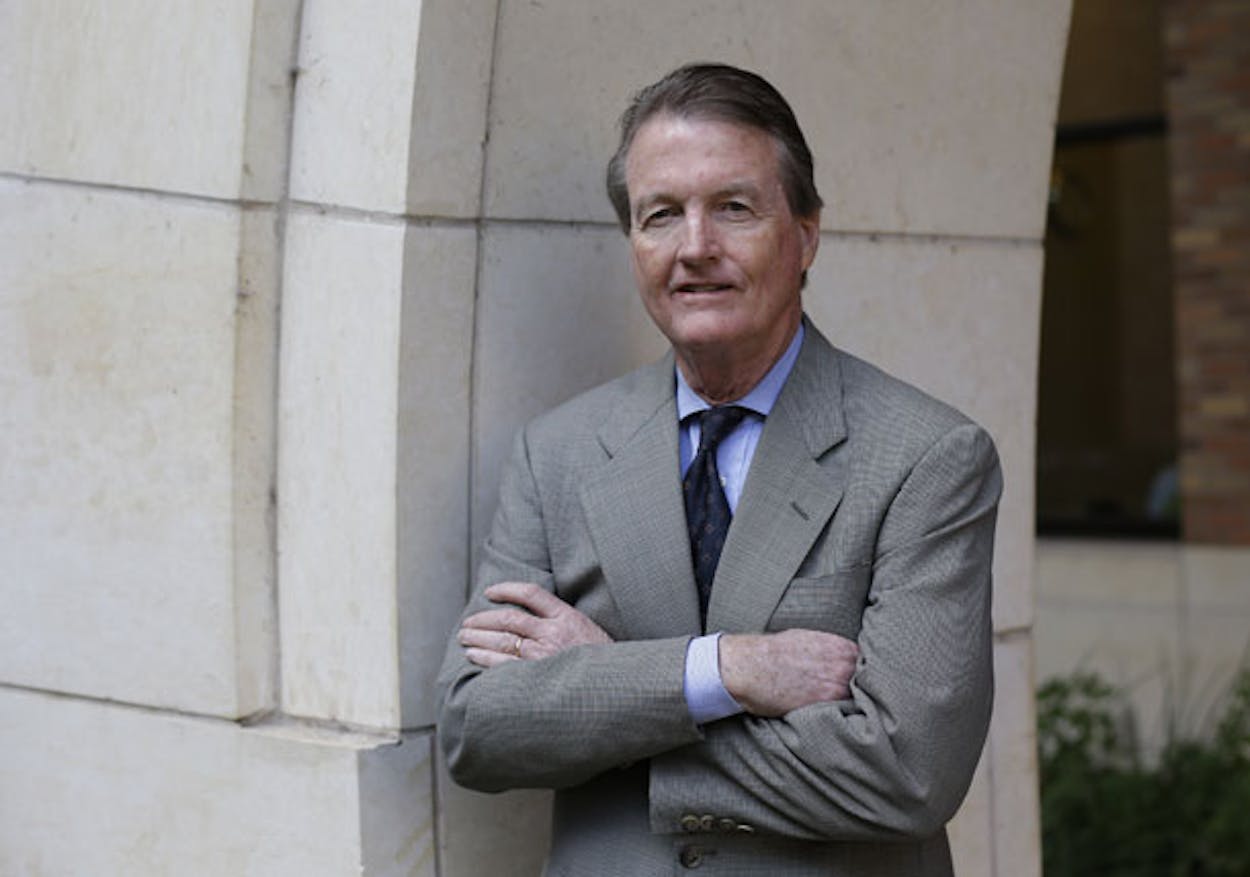The shooting war flared up again this week in the ongoing clash between the University of Texas System Board of Regents and the president at the University of Texas at Austin. On Tuesday, the action took place at the Capitol, when the Joint Committee on Higher Education Governance, Excellence, and Transparency met for the first time this session. Kel Seliger, the Republican senator from Amarillo who is a co-chair of the committee, used the “s” word—as in “subpoenas”—when referring to the members of the board. Jim Pitts, the Waxahachie Republican who chairs the House Appropriations Committee, turned up the heat even more. He said that the regents have conducted “witch hunt after witch hunt after witch hunt” against UT president William Powers. On Wednesday morning, the Board of Regents fired back.
In a 4-3 vote, they approved a motion by the Audit, Compliance, and Management Review Committee to “conduct a thorough external investigation of the use and management by UT-Austin of funds provided for the support of the School of Law.” The committee had met briefly in open session, then recessed to executive session for nearly three hours, during which time Powers and outgoing UT provost Steven Leslie appeared before the committee.
When the full board met, the committee presented its recommendations, which stem from the Law School Foundation’s loan forgiveness program, which cost Dean Larry Sager his job in 2011. At the time, UT System vice chancellor and general counsel Barry Burgdorf led an internal investigation that was reviewed by the state Attorney General’s Office and recommended ending the program, which began when Powers was dean of the School of Law. But some of the regents clearly had little faith in his report. Burgdorf announced his resignation earlier this month—marking another high-profile departure—and the committee recommended that his report be set aside in part because of “fact discrepancies regarding transparency and disclosure of or consent to material compensation matters.” Put simply, Burgdorf’s findings did not reveal the entire story.
That became a focus of the ensuing debate between members of the board, which at times grew tense. R. Steven Hicks asked Chancellor Francisco Cigarroa if, during the executive session, that he had “any hint of malfeasance” on the part of Powers or Leslie. Cigarroa replied that he did not, adding, “What gave me hope in talking with Dr. Leslie is that those decisions bypassed the provost’s office and have been corrected.”
Hicks replied, “I just can’t imagine that we should spend $500,000 of the taxpayers’ money to beat this dead horse. . . . I have no doubt about where this is headed: to try to lay some blame at the feet of Bill Powers.” He added by saying that the board was doing a disservice to the university and its employees by pursuing the matter.
Alex Cranberg, however, offered a different view. “No price can be put on the integrity and the trust associated with the governance mechanisms with which we are entrusted,” he said. “We should not measure this [investigation] against some possible recovery. I can’t say that I have confidence that the facts that have been set out are the only ones that need to be set out.”
Wallace Hall agreed with Cranberg, saying that he had read materials that had been returned as a result of six open records requests, some of which he had received as late as Tuesday evening. His contention was that the Burgdorf report is incomplete and that information that would provide a fuller picture of the university’s dealings was not included. In an apparent rebuke to Hicks, he said, “It would be wonderful if cheering for our institutions was the sum total of our responsibilities, but it’s not. . . . To dismiss this proposal out of hand is in inappropriate.”
When the motion came up for a vote, Hicks, James Dannenbaum, and Robert Stillwell all voted no in succession. Then Cranberg, Hall, and Brenda Pejovich voted yes, splitting the board at 3-3. Because Chairman Gene Powell was on vacation in Colorado, that left the motion in the hands of Vice Chairman Paul Foster, who could abstain or vote. He broke the tie by supporting the committee’s recommendation. One staff member said after the meeting that it was “very rare” for an acting chair to break a tie and could not recall that happening in at least a decade.
So what does this mean for the university going forward? First, it’s an important victory for the bloc of regents that has been pursuing issues related to transparency because it paves the way for ongoing scrutiny regarding the university’s operations. After all, independent auditors and investigators who are hired at an estimated price tag of $500,000 are motivated to find something. That will continue to keep Powers and other members of the administration on the defensive—and further clouds Powers’s future at the university. After the meeting, the president told a group of reporters, “Any implication in what occurred today that I have not been transparent or forthcoming with information to the system or when asked by the regents is simply false.” Now his supporters will no doubt try to strike back, perhaps by singling out particular regents for scrutiny of their own, but one thing is certain: the war rages on, and the list of casualties is certain to grow.
- More About:
- Politics & Policy






